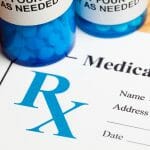Suboxone and Kratom are two seeming miracle solutions to the opioid epidemic. One prescription. One…
LSD is a psychoactive drug that affects the way people feel, see, and perceive the world around them. Part of a family of drugs termed hallucinogens, LSD (D-lysergic acid diethylamide) is a popular, powerful drug derived from lysergic acid found on some fungus. LSD can be ingested by swallowing it as a pill or liquid, or as a mouth-absorbing drug-soaked piece of paper.
While LSD does not produce physical dependence similar to opiate addiction, LSD abuse and addiction can lead to long-term psychological disorders and an overall decline in a person’s quality of life. Frequently using LSD can cause psychological dependence. To treat LSD addiction, a structured treatment plan that focuses on experiential therapies and therapeutic modalities, such as cognitive behavioral therapy, are effective courses of action to help you or a loved one heal from chronic LSD use.
If you have any questions about how an Intensive Outpatient Program (IOP) can help, call Boardwalk Recovery at (858) 888-0101.
Effects of LSD
Many people think that LSD is a “safe” drug. While it is true that the risk of fatal overdose is minuscule (especially when used in religious or spiritual ceremonies), short-term effects can be so powerful that it puts the user in danger to themselves and others. In addition to the powerful visual and hallucinatory sensory effects that can lead to “bad trips” that are like living through some of the worst nightmares, LSD can cause many other immediate side-effects:
- Increased heart rate
- Nausea
- An unreliable sense of time
- Exaggerated feelings and intensified sensory experiences
Depending on the person, other side effects of LSD include:
- Increased blood pressure, rapid breathing, and rising body temperature
- Dizziness
- Inability to sleep
- Loss of appetite
- Mouth dryness
- Problems with extremities: numbness, weakness, and tremors
- Rapid, impulsive changes in extreme emotional states. These include moving between extreme euphoria to extreme fear from moment to moment. These intense emotions can happen so fast that the user may experience several strong feelings simultaneously.
The long-term effects of LSD abuse can cause psychological and mood disorders that are persistent and chronic. The two most common conditions are persistent psychosis and hallucinogen persisting perceptual disorder (HPPD).
- Persistent psychosis: This side effect includes a series of ongoing mental problems that have varying levels of severity. Psychosis usually comprises one or both experiences of hallucinations (auditory, visual, and perceptive) and delusions (strong beliefs that are inconsistent with reality such as believing something is controlling the sufferer’s thoughts or believing you are on a special mission from god or hold special powers).
- Flashbacks (HPPD): These are defined as recurrences of experiences felt and perceived from past drug experiences. Flashbacks occur with no warning and can happen at any time. People have reported flashbacks in as little as a few days after using LSD and as far removed as more than a year. Strong visual hallucinations are consistent with flashbacks, as are seeing light trails from ordinary moving objects. These can persist and have an overall negative impact on quality of living.
LSD and Addiction
LSD, also known as “acid,” is not considered physically addictive like other drugs (i.e., heroin, alcohol, or cocaine) because it does not induce uncontrollable cravings and drug-seeking behavior. However, LSD is known to produce drug tolerance relatively quickly. Not only does LDS produce tolerance, but it also causes the user to have an increased tolerance for other hallucinogens. This can be dangerous because users have to take more acid to feel effects like their first time, but the drug’s effects are very unpredictable and can lead to a “bad trip.”
LSD Treatment
If you are concerned about a loved one’s use of LSD, CRAFT (Community Reinforcement and Family Training) is useful for learning techniques that work in getting someone into treatment without alienating them. CRAFT helps teach family members how to engage and communicate with their loved ones who refuse, or are resistant to, treatment as an option and need. Boardwalk Recovery uses elements of CRAFT in family therapy sessions and can help answer your questions about how to approach someone with an LSD addiction.
While some people need treatment for LSD abuse, there are some that experiment with using LSD to help “curb” alcoholism and drug addiction. Researchers have been experimenting with using a single-dose, in a very controlled environment, to see if LSD-assisted treatment has efficacy. Researchers are quick to emphasize that more research is needed and that people should not use LSD at home to help treat addiction as it will more than likely make their current psychological or addiction problems worse.
Life can be good again and we’d like to show you how.









